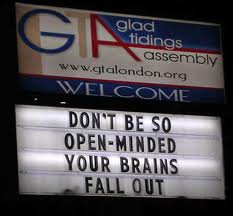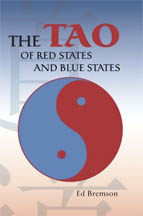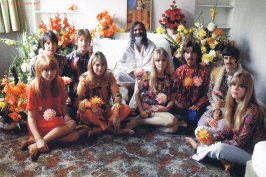 Today I received an email from Network Solutions offering special pricing on the hottest new domain name in the domain name domain: “.guru.” At first I was intrigued, and I checked to see what domains might be available. I tried my name.guru, and that was available. I tried marketing.guru, but that was taken. Damn. So I tried various others, and most of them were open. I even tried guru.guru, just in case I wanted to be known as the guru of gurus. Bingo. Available!
Today I received an email from Network Solutions offering special pricing on the hottest new domain name in the domain name domain: “.guru.” At first I was intrigued, and I checked to see what domains might be available. I tried my name.guru, and that was available. I tried marketing.guru, but that was taken. Damn. So I tried various others, and most of them were open. I even tried guru.guru, just in case I wanted to be known as the guru of gurus. Bingo. Available!
But then the angel on my shoulder said, “Whoa there, swami, do you really want people to think that you think you’re a guru? A little pretentious, don’t you think, especially for a guy that doesn’t look remotely Indian. So I passed on the .guru domain. Even if it were free, I couldn’t bring myself to use it except for maybe a comedy blog about a guy who goes to India to seek enlightenment but ends up managing a sweatshop where eight-year-olds sew silk ties for a famous Italian designer.
I got to thinking, though (unusual for me before my morning shower), about what happens to words, as I often do. When I first ran into the word “guru,” it was way back in another century – the latter middle part of that century in fact. People went to India to seek a guru who would take them on as students and teach them the meaning of life. Some of them were serious. Others simply had too much money and time on their hands. The Beatles and other celebrities adopted the Swami Satchidinanda as their mascot. And George Harrison, the most spiritual Beatle, even learned to play sitar. Frank Zappa, my personal teenage musical idol (not guru) made fun of the whole idea in his song “Cosmik Debris.” The guru craze Zappa made fun of may have been a little creepy, but back then at least we knew what a guru was supposed to be: an Indian spiritual guide and teacher.
“And I said ‘Look here brother
Who you jiving with that cosmik debris?
Now what kind of a guru are you, anyway?
Look here brother, don’t waste your time on me'”
(from Zappa – Cosmik Debris)
Now, an yone who knows more than the average bear about something can bill himself or herself as a guru. Marketing gurus are everywhere. SEO gurus. Lean Six Sigma gurus. Among the many guru options available today, only the Lean Six Sigma gurus seem to actually promise spiritual enlightenment. Because I can be a bit of an ass sometimes, whenever someone introduces me to a “guru,” I like to ask what part of India they’re from. Some people think it’s funny; most just think it’s in bad taste.
yone who knows more than the average bear about something can bill himself or herself as a guru. Marketing gurus are everywhere. SEO gurus. Lean Six Sigma gurus. Among the many guru options available today, only the Lean Six Sigma gurus seem to actually promise spiritual enlightenment. Because I can be a bit of an ass sometimes, whenever someone introduces me to a “guru,” I like to ask what part of India they’re from. Some people think it’s funny; most just think it’s in bad taste.
You can look up “guru ” and find all sorts of history. You will find this guy, Guru Nanak, the first Sikh guru (15th century), and your more contemporary gurus of course.
Who are today’s gurus?
The Guru Girls promote condoms.
Want to see the Guru of Spores?
You got your used car gurus.
This guru is a cat.
Here’s the trade show guru.
We got your quality gurus right here.
You get the point.
Words evolve. Original meanings get lost. I get that. But we have an interesting case here. If lots of people adopt the .guru domain name, thus claiming that they are the spiritual leaders of trade shows or toxic torts or permanent nose hair removal, then nobody can be recognized as an actual guru ever again. The word will have killed the species. Extinction by etymology. And if nobody can be an actual guru anymore, then who will the rock stars of the future turn to for spiritual growth?
Just sayin’. . .










